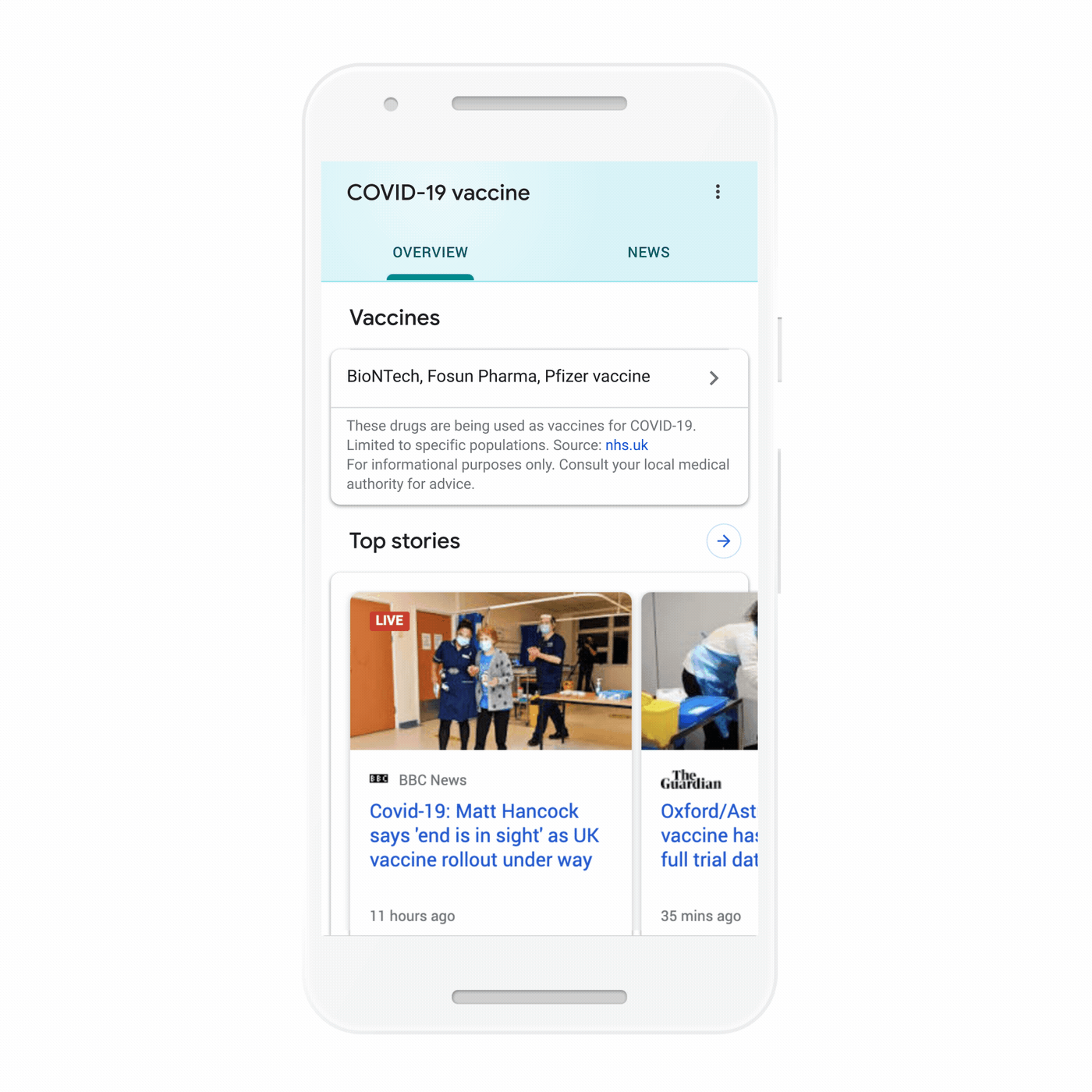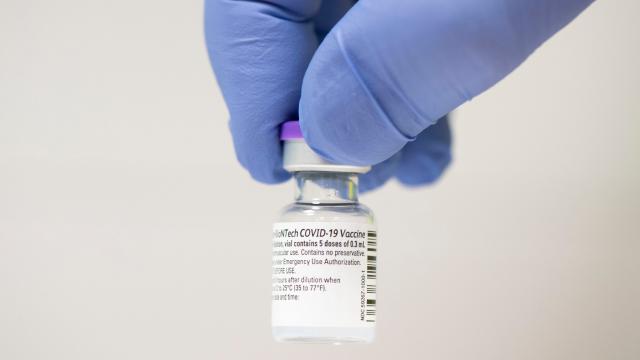Google plans to counter vaccine conspiracy theories and misinformation by tacking on new knowledge panels to search results when people look up information about covid-19 vaccines.
The feature’s launching first in the UK, where health authorities began rolling out the Pfizer-BioNTech vaccine — the first of its kind approved in the West — this week. Google intends to expand the feature as more countries begin approving covid-19 vaccines, the company said in a blog post Thursday.
“The fight against the pandemic and the development of new vaccines has required global collaboration between the public health sector, and the scientific and medical communities,” wrote Google’s head of trust and safety Kristie Canegallo and chief health officer Dr. Karen DeSalvo. “As work begins to vaccinate billions of people, we’ll support these efforts with additional products and features to ensure people have the right information at the right time.”
Now when UK residents search for more info about covid-19 vaccines, panels pop up in the results with a list of authorised vaccines in their area and a breakdown of the different vaccines being developed. Google said future updates will point users toward vaccine information from “global and local health authorities.”

Back in March, Google launched a similar feature for YouTube aimed at dispelling misinformation about covid-19. On Thursday, the company said these information panels, which appear on both the YouTube homepage and in search results related to the pandemic, have been viewed more than 400 billion times since. More than 700,000 videos “related to dangerous or misleading COVID-19 medical information” have also been removed from the platform since Google expanded its medical misinformation policies last month to include covid-19 vaccine claims that go against guidance from health authorities.
It’s unclear how effective these panels are at keeping people from falling for bogus coronavirus claims. Social media platforms have practically been playing whack-a-mole with the slew of covid-19 conspiracy theories that flooded the internet this year, but data is scarce on how effective their moderation efforts have been.
To that effect, Google also announced that it’s funding researchers at Columbia, George Washington, and Ohio State universities to survey internet users and find out how to best combat vaccine misinformation and discover whether its fact-checking efforts are influencing whether people get vaccinated. The company said it would also provide $US1.5 ($2) million to fund fact-checking research and the development of a hub for journalists to access “scientific expertise and research updates” about vaccine development.
